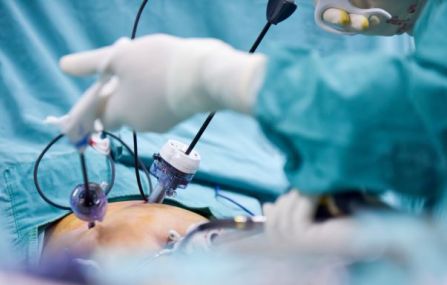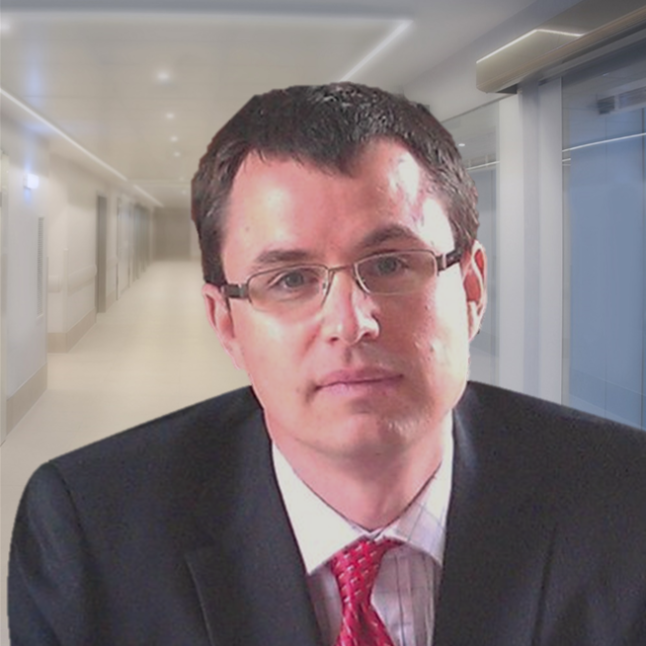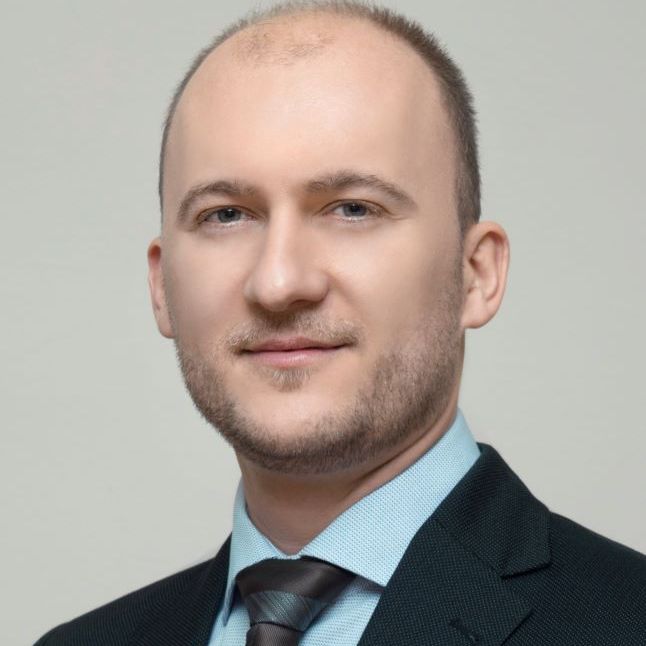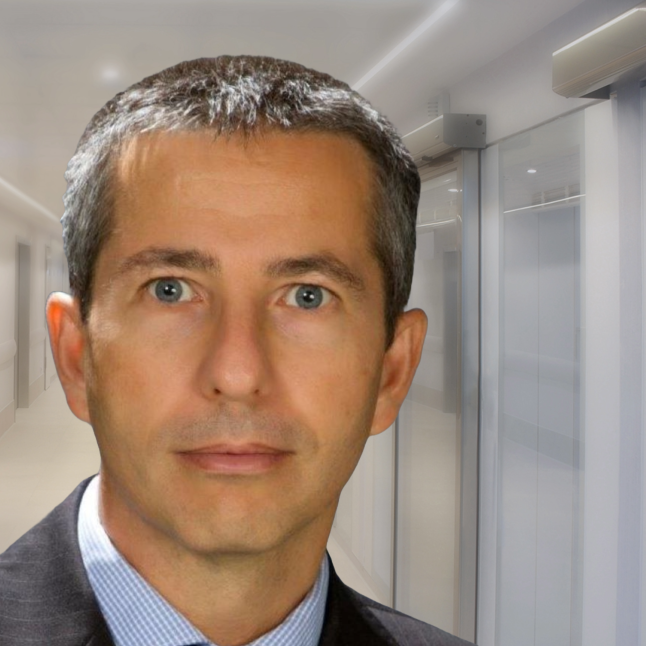 The abdominal wall has certain weak points due to its structure or possibly from previous surgical scars. If the muscles separate at these points, a rupture, or hernia can form. The protruding peritoneum at the site of the rupture can cause pain and discomfort due to the tension of the organs that have entered the protrusion. This condition is known as a hernia, which comes in various types: inguinal hernia, umbilical hernia, and abdominal hernia.
The abdominal wall has certain weak points due to its structure or possibly from previous surgical scars. If the muscles separate at these points, a rupture, or hernia can form. The protruding peritoneum at the site of the rupture can cause pain and discomfort due to the tension of the organs that have entered the protrusion. This condition is known as a hernia, which comes in various types: inguinal hernia, umbilical hernia, and abdominal hernia.
A hernia is a common condition and can only be cured surgically. Its formation can be painless, but patients may also experience a feeling of tension, burning, pressure, or perhaps stabbing pain, which coincides with a smaller or larger protrusion. If it does not cause discomfort, it may be possible to wait with its resolution. However, it should be kept in mind that as time passes, the hernia can grow, cause discomfort, and can also lead to the development of other diseases. In such cases, surgical resolution can be riskier or more complicated.
Another potential danger is the possibility of strangulation, when the hernial ring (abdominal opening) constricts in a circular manner, compressing the veins of the hernia content, making the hernia painful and tense. The bowel function may stop and without appropriate treatment, the hernia content - most often the bowel - may die.
At Duna Medical Center, we perform hernia surgeries under general anesthesia, spinal or, if necessary, local anesthesia. Anesthesia or spinal anesthesia is always supplemented with local anesthesia in the surgical area, which significantly reduces postoperative pain. Thus, we can send most of our patients home on the day of surgery.
We primarily use laparoscopic techniques, and if this is not possible, we operate on the hernia using traditional methods. Our hernia specialist, Dr. Peter Sipos, who has extensive international practice, carries out gentle and safe interventions supported by our state-of-the-art equipment. It is important that we can choose a surgical technique and, if necessary, an associated mesh, individually based on the patient's physique and the nature of the abnormality. During the surgery, we use macroporous polyester or polypropylene meshes, or partially or fully absorbable meshes.
We use absorbable sutures aesthetically, and we recommend the use of wound healing cream after surgery, so the site of the incision heals almost without scarring.
The preoperative examination can be done at our institution, and can be completed within a day. Duna Medical Center's brand new, state-of-the-art operating complex is available for surgeries.
The most common types of hernia and surgical methods:
Inguinal hernia
For smaller inguinal hernias, we recommend laparoscopic surgery without opening the abdominal cavity, which has the advantage of avoiding intra-abdominal adhesions, completely eliminating the possibility of injury to the intra-abdominal organs, and the surgery can even be performed with ventilation without a tube placed in the trachea.
In the case of larger, complex inguinal hernias, we recommend the laparoscopic method through the abdominal cavity, thus the abdomen can be reviewed, other diseases can be excluded or resolved.
For extremely large inguinal hernias and scrotal hernias, we recommend the mesh implantation method through an incision led in the groin. In this case, due to the large wound surface, hemostasis can be more carefully implemented, and after layered restoration, the accumulation of tissue fluid can be minimized by placing a drain and closing tissue spaces.
For patients in whom the use of mesh is contraindicated, there is the option of the so-called Shouldice surgery, where we do not implant any mesh, but perform the correction by approximating tissues.
Umbilical and epigastric hernias
The laparoscopic surgery is suitable for larger hernias and for patients with multiple hernias in the midline of the abdomen. It allows the simultaneous repair of several hernias through small incisions, and the recurrence rate is low.
In the case of small umbilical and epigastric hernias, the single-port (one hole) method can be used, which allows a quick recovery time, no need for overnight hospitalization, and the wound is almost invisible due to the location of the incision.
Larger and recurrent hernias are also suitable for open surgery, where the mesh is implanted under the abdominal muscles, thus tension can be eliminated, and the recurrence rate is low.
Abdominal hernia
The treatment of abdominal wall hernias also occurs in a personalized way, depending on the patient's condition, the size of the hernia and the state of the abdominal wall muscles.
The laparoscopic method is primarily suitable for small to medium-sized hernias and recurrent hernias. It allows simultaneous correction of several hernias through small incisions, and it can be performed without opening the abdominal cavity, thus avoiding adhesions.
For large hernias, we recommend an open surgical procedure where the abdominal muscles are reconstructed, and in most cases, a mesh is used. The recovery time is longer in this case, but the recurrence rate is low.
In summary, we emphasize the importance of individual patient-centered treatment. As the nature of the hernias and their impact on patients' lives are diverse, it is essential to choose the surgical method that best suits the individual patient's needs.
Additional Information:
In the case of apron belly, we offer the possibility of resolving both the apron belly and hernia simultaneously, even involving a plastic surgeon available in our institution if needed.
If a problem was detected during a previous mesh implantation, we can also use a partially or fully absorbable mesh.
In the case of separation of the rectus abdominis muscles, often seen in women who have given birth multiple times or in overweight men, the solution may be the implantation of a mesh behind the rectus abdominis, which we can also perform laparoscopically.
*The price for laparoscopic surgeries does not include the cost of any potentially necessary special meshes and clips. The necessity and size of these are always decided by the surgeon performing the intervention on an individual basis. The prices do not include the cost of specialist and diagnostic examinations before the surgery and the cost of hospital care needed after the surgery.
-
Bilateral inguinal hernia surgery (laparoscopic or traditional)From 900 000 Ft
-
Large abdominal hernia surgery (laparoscopic or traditional)From 931 000 Ft
-
Medium abdominal hernia surgery (laparoscopic or traditional)From 735 000 Ft
-
Small abdominal or umbilical hernia surgery (laparoscopic or traditional)From 578 000 Ft
-
Unilateral inguinal hernia surgery (laparoscopic or traditional)From 770 000 Ft










